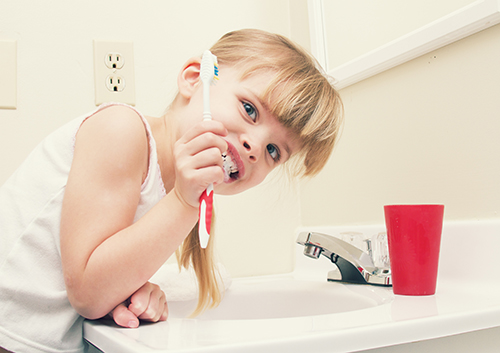Socket Preservation
June 1st, 2023

Dental implants are a marvel! They look just like your natural teeth, and, even better, they function just like your natural teeth. So, when you’re planning on a dental implant after an extraction, you want to make sure that your implant has the best chance of success—and we do, too. That’s why we might recommend a socket preservation procedure, where socket grafting takes place immediately after your extraction.
What is a socket graft, and what does it “preserve”? Let’s take a closer look.
Socket Preservation—A Logical Choice After Extraction
You’ve decided on a dental implant for some excellent reasons.
- A missing tooth can change the appearance of your smile.
- Your remaining teeth might shift to fill the empty space, causing alignment and bite problems.
- A lost tooth affects the amount, shape, and health of the bone surrounding your teeth.
No one wants to lose a tooth, but sometimes, due to injury or decay, an extraction is the only choice for your oral health. After your tooth is extracted, if the socket bone holding the tooth is perfectly healthy and the extraction is a simple one, we might be able to place an implant post in the socket right away.
But often, bone needs time to heal before placing an implant post, and you risk losing the bone size and density you need to make a future implant possible. How can you lose bone? That’s an unfortunate consequence of losing teeth. Teeth are important not just because they let us eat comfortably—they also help maintain bone health.
Without the stimulation of biting and chewing, the bone beneath the teeth begins a process called resorption. As older cells are absorbed back into the body, new bone cells aren’t produced as quickly to replace them. The alveolar bone, the thick ridge of the jaw which holds our sockets, shrinks in size. As the bone gets smaller, gum tissue shrinks around it, causing a sunken spot where your tooth used to be.
For a dental implant to anchor successfully in the jawbone, you need healthy bone that is high enough, wide enough, and dense enough to hold the implant post securely as it fuses with the bone.
A socket graft at the time of extraction provides two important benefits: grafting material fills the empty socket immediately, preserving the bone and gum area around it, and the graft material acts as scaffolding for new bone growth, creating a firm, dense foundation for your implant.
Grafting materials are gradually and safely absorbed as your new, healthy bone tissue replaces them. The result, after several months of healing, is an alveolar ridge with normal height and width and with the density needed to anchor an implant successfully.
The Grafting Procedure
Grafting material comes in different forms, including allografts (made from donor bone), synthetic grafts (made from synthetic materials which function like bone tissue), and autografts (bone taken from your own body). Growth factors may also be included in the grafting material to encourage new cell growth. Dr. Keith J. Fabre Jr. will recommend the type of graft which will work best for you.
A socket preservation procedure will frequently involve the following steps:
- Local anesthesia to numb the area before your extraction. You might choose sedation options as well, which we’re happy to discuss with you in advance.
- Careful cleaning of the site after the tooth is extracted.
- Filling the empty socket with bone grafting material.
- Placing a barrier or membrane over the graft to protect it as it heals.
- Suturing the surrounding gum tissue.
Aftercare Treatment
Aftercare treatment for a socket graft is a lot like the treatment for a tooth extraction. You’ll need to be careful around the graft area for several days as it heals, and we’ll give you specific instructions for your recovery. Normally, these may include:
- Don’t disturb or touch the area. Even pulling on lips or mouth to look at the site can put stress on your sutures.
- Immediately after the procedure, we can give you suggestions for reducing swelling and managing any pain you might be feeling.
- We’ll let you know when and how to rinse your mouth clean and when you can return to brushing. And no spitting!
- Eat carefully. We might recommend a liquid diet for a few days before transitioning to bland and cool soft foods. We’ll let you know the best diet for the period after your surgery. Don’t use a straw for your liquid diet, because suction can interfere with the wound.
- Treat yourself carefully for a few days by avoiding strenuous activities, including workouts.
- Don’t smoke. Smoking interferes with the healing process, and the suction involved does your graft no favors either.
- Visit our Marrero office for follow up appointments as recommended. We’ll monitor your healing, and give you a timeline for your future implant.
Preserving your socket now instead of repairing it later has many advantages. Immediate placement of a graft protects bone size and density, eliminates the need for a potential bone grafting procedure in the future, and makes it possible for you to enjoy the natural look and feel of a dental implant as soon as possible. If you have an extraction scheduled, let’s discuss why socket preservation might be your best path to an efficient, timely, and successful dental implant.



